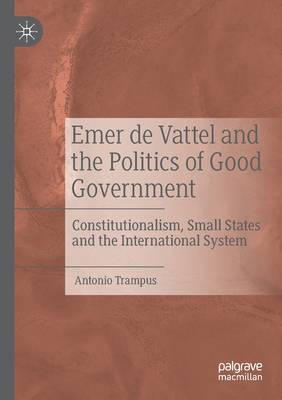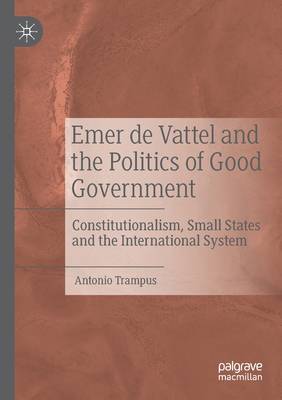
Bedankt voor het vertrouwen het afgelopen jaar! Om jou te bedanken bieden we GRATIS verzending (in België) aan op alles gedurende de hele maand januari.
- Afhalen na 1 uur in een winkel met voorraad
- In januari gratis thuislevering in België
- Ruim aanbod met 7 miljoen producten
Bedankt voor het vertrouwen het afgelopen jaar! Om jou te bedanken bieden we GRATIS verzending (in België) aan op alles gedurende de hele maand januari.
- Afhalen na 1 uur in een winkel met voorraad
- In januari gratis thuislevering in België
- Ruim aanbod met 7 miljoen producten
Zoeken
Emer de Vattel and the Politics of Good Government
Constitutionalism, Small States and the International System
Antonio Trampus
Paperback | Engels
€ 152,95
+ 305 punten
Uitvoering
Omschrijving
This book explores the history of the international order in the eighteenth and nineteenth century through a new study of Emer de Vattel's Droit des gens (1758). Drawing on unpublished sources from European archives and libraries, the book offers an in-depth account of the reception of Vattel's chief work. Vattel's focus on the myth of good government became a strong argument for republicanism, the survival of small states, drafting constitutions and reform projects and fighting everyday battles for freedom in different geographical, linguistic and social contexts. The book complicates the picture of Vattel's enduring success and usefulness, showing too how the work was published and translated to criticize and denounce the dangerousness of these ideas. In doing so, it opens up new avenues of research beyond histories of international law, political and economic thought.
Specificaties
Betrokkenen
- Auteur(s):
- Uitgeverij:
Inhoud
- Aantal bladzijden:
- 267
- Taal:
- Engels
Eigenschappen
- Productcode (EAN):
- 9783030480264
- Verschijningsdatum:
- 1/09/2021
- Uitvoering:
- Paperback
- Formaat:
- Trade paperback (VS)
- Afmetingen:
- 148 mm x 210 mm
- Gewicht:
- 331 g

Alleen bij Standaard Boekhandel
+ 305 punten op je klantenkaart van Standaard Boekhandel
Beoordelingen
We publiceren alleen reviews die voldoen aan de voorwaarden voor reviews. Bekijk onze voorwaarden voor reviews.









